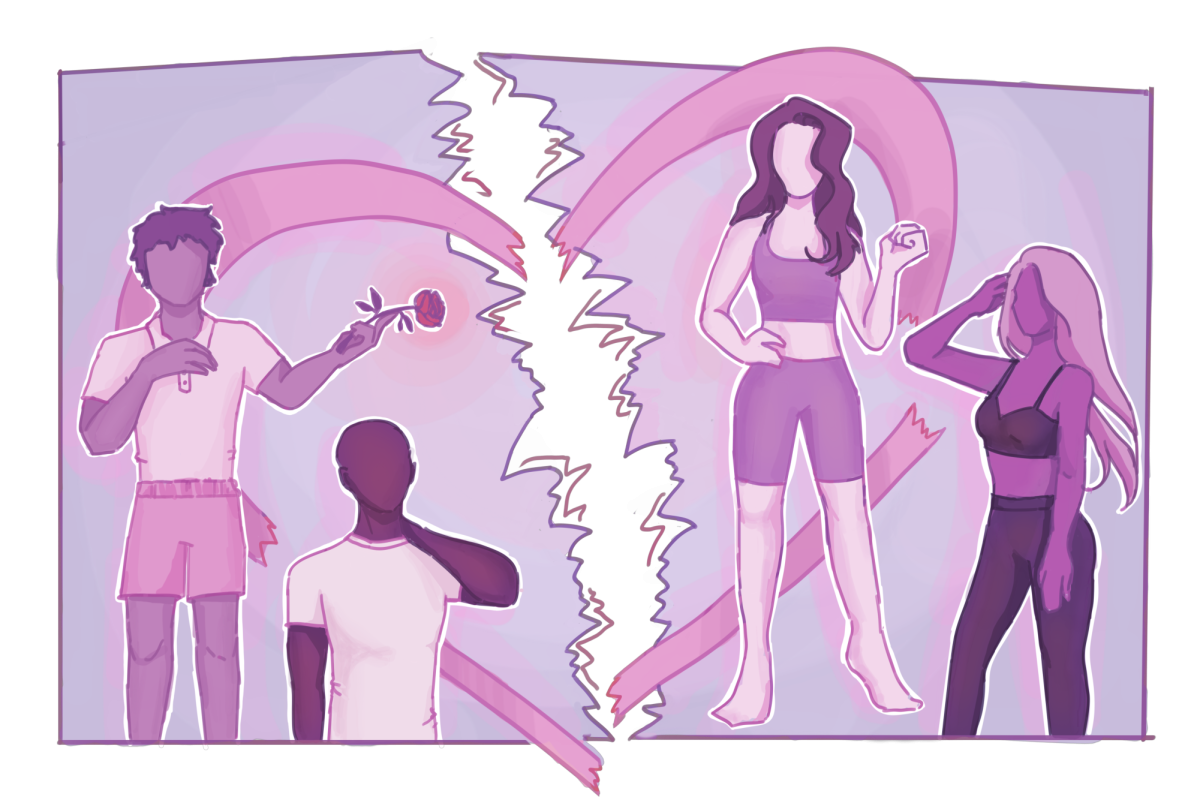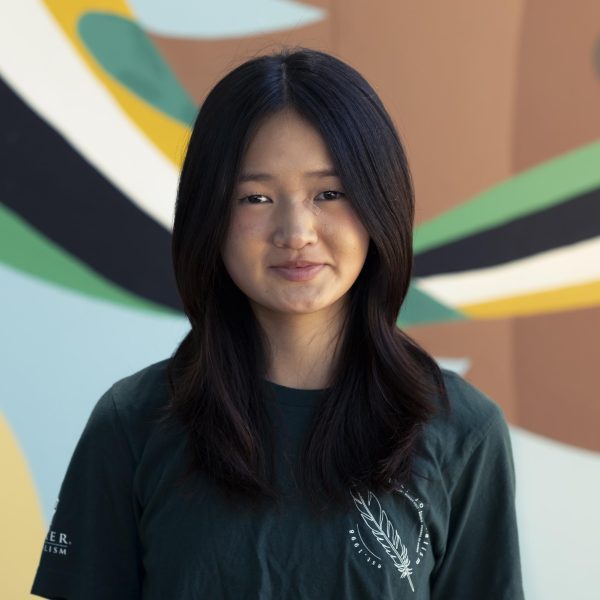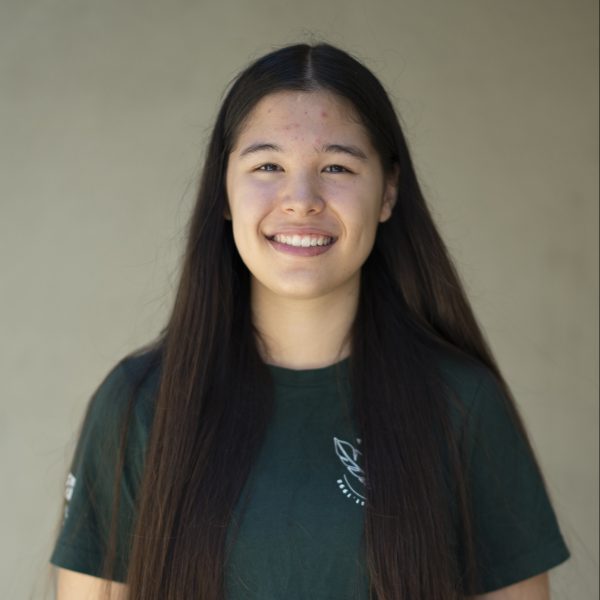One word. Four letters. A world of meaning behind it. For some, it’s embodied in their high school classmate, admired secretly from across the classroom. For others, it’s sought through online dating apps and direct messaging on social media platforms. And when conventional methods fail, some fall for the allure of reality dating shows: a spectacle of drama and competition that promises the elusive dream of finding true love. Except, there’s one small catch — this “true love” rarely lasts.
Capturing the attention of viewers across the world, dating shows have risen in popularity due to the endless petty drama, emotional conversations and of course, countless swoon-worthy moments. The seemingly perfect relationships appear too good to be true and in most cases, they are. In fact, popular American dating shows like “Love Island” and “Too Hot to Handle” have yet to produce a couple lasting over one year, which is ironic considering these programs promise the discovery of true love.
Contestants on many dating shows spend every moment of their day with their potential partner in an isolated, paradise-like environment, leading them to grow detached from the realities of the outside world. After transitioning from this secluded setting back to their daily lives, couples struggle to balance their newfound relationships with everyday responsibilities and challenges, leading seemingly strong relationships to crumble.
The return to reality also poses another question: can love endure the distance? Looking at the common trend among previous dating show couples, the answer — more often than not — is no. For American dating shows, staying together after the show proves particularly difficult given the highsheer living expeanses of living in the country. Couples often struggle with long distance and remain unwilling to move for one another for a plethora of reasons, ranging from wanting to stay close to their family to simply feeling that their partner is not worth the sacrifice. Again, couples’ unwillingness to accommodate one another testifies to the ineffectiveness of these dating programs, as they shelter contestants from real-world issues like long-distance dating.
Challenges posed by long distance have a smaller impact on couples from Asian reality dating shows. In smaller countries like Korea or Japan, couples can still live close together even after the show ends. The closer proximity may explain why Asian dating shows have produced morecertain couples that are still together to this day, like Sera and Jeongjin from “Love Catcher 2” who met on the show in 2018 and now plan for marriage. Other notable couples include Hae Eun and Hyun Gyu from “Transit Love 2” and Heeji and Pyeongseok from “Nineteen to Twenty.” However, the fact that only a few couples out of the hundreds featured on Asian dating shows remain together underscores the weak relationships built through these programs.
The short duration of reality dating shows further heightens the fragility of the relationships, preventing participants from genuinely learning about their love interests and instead only allowing for surface level conversations. Considering the superficiality of their relationships, it is no surprise that they fall apart in the real world. A prime example is popular Asian dating show “Single’s Inferno,” where contestants are afforded only eight days to deepen their bonds and forge meaningful connections. Across all three seasons, Single’s Inferno produced one couple that continued their relationship into 2024, and even their relationship status is not officially confirmed.
Such an approach also forces contestants to choose their partners based on superficial details like physical attraction. American dating shows further emphasize the physical aspect of dating by encouraging female contestants to dress in either bikinis or body-con dresses throughout the show, and the wardrobe of male contestants is often confined to swim trunks and semi-formal attire. Producers also often ask contestants to share the same bed from the first day, prioritizing a physical connection over a deeper, emotional connection.
Moreover, I believe most contestants are aware of the fragile relationships developed through most reality dating programs. They may desire publicity and fame and view reality dating shows as an easy avenue to stardom. On top of their aspiration for popularity, contestants may also be drawn by the cash prize offered at the end of certain dating shows. For example, “Love Island USA” offers a $100,000 prize to the winning couple, and “Too Hot To Handle” begins with a $200,000 prize pool split among contestants. In this way, contestants may focus on building relationships that appeal to viewers to obtain the lucrative cash prize. The superficiality of dating show couples should also discourage viewers from comparing their own relationships with those they see on reality television.
The consistent reinforcement of surface level attraction, coupled with certain contestants’ materialistic motives, contributes to the formation of fragile relationships. Producers of reality dating shows prioritize viewership over building genuine connections, leading them to focus on increasing drama and emotions. While some contestants find lifelong partners through these programs, the more common trend demonstrates that underneath the glamor and romance of these carefully crafted shows, a multitude of couples struggle to maintain their relationship in the face of real-world obstacles.


















![“[Building nerf blasters] became this outlet of creativity for me that hasn't been matched by anything else. The process [of] making a build complete to your desire is such a painstakingly difficult process, but I've had to learn from [the skills needed from] soldering to proper painting. There's so many different options for everything, if you think about it, it exists. The best part is [that] if it doesn't exist, you can build it yourself," Ishaan Parate said.](https://harkeraquila.com/wp-content/uploads/2022/08/DSC_8149-900x604.jpg)




![“When I came into high school, I was ready to be a follower. But DECA was a game changer for me. It helped me overcome my fear of public speaking, and it's played such a major role in who I've become today. To be able to successfully lead a chapter of 150 students, an officer team and be one of the upperclassmen I once really admired is something I'm [really] proud of,” Anvitha Tummala ('21) said.](https://harkeraquila.com/wp-content/uploads/2021/07/Screen-Shot-2021-07-25-at-9.50.05-AM-900x594.png)







![“I think getting up in the morning and having a sense of purpose [is exciting]. I think without a certain amount of drive, life is kind of obsolete and mundane, and I think having that every single day is what makes each day unique and kind of makes life exciting,” Neymika Jain (12) said.](https://harkeraquila.com/wp-content/uploads/2017/06/Screen-Shot-2017-06-03-at-4.54.16-PM.png)








![“My slogan is ‘slow feet, don’t eat, and I’m hungry.’ You need to run fast to get where you are–you aren't going to get those championships if you aren't fast,” Angel Cervantes (12) said. “I want to do well in school on my tests and in track and win championships for my team. I live by that, [and] I can do that anywhere: in the classroom or on the field.”](https://harkeraquila.com/wp-content/uploads/2018/06/DSC5146-900x601.jpg)
![“[Volleyball has] taught me how to fall correctly, and another thing it taught is that you don’t have to be the best at something to be good at it. If you just hit the ball in a smart way, then it still scores points and you’re good at it. You could be a background player and still make a much bigger impact on the team than you would think,” Anya Gert (’20) said.](https://harkeraquila.com/wp-content/uploads/2020/06/AnnaGert_JinTuan_HoHPhotoEdited-600x900.jpeg)

![“I'm not nearly there yet, but [my confidence has] definitely been getting better since I was pretty shy and timid coming into Harker my freshman year. I know that there's a lot of people that are really confident in what they do, and I really admire them. Everyone's so driven and that has really pushed me to kind of try to find my own place in high school and be more confident,” Alyssa Huang (’20) said.](https://harkeraquila.com/wp-content/uploads/2020/06/AlyssaHuang_EmilyChen_HoHPhoto-900x749.jpeg)





